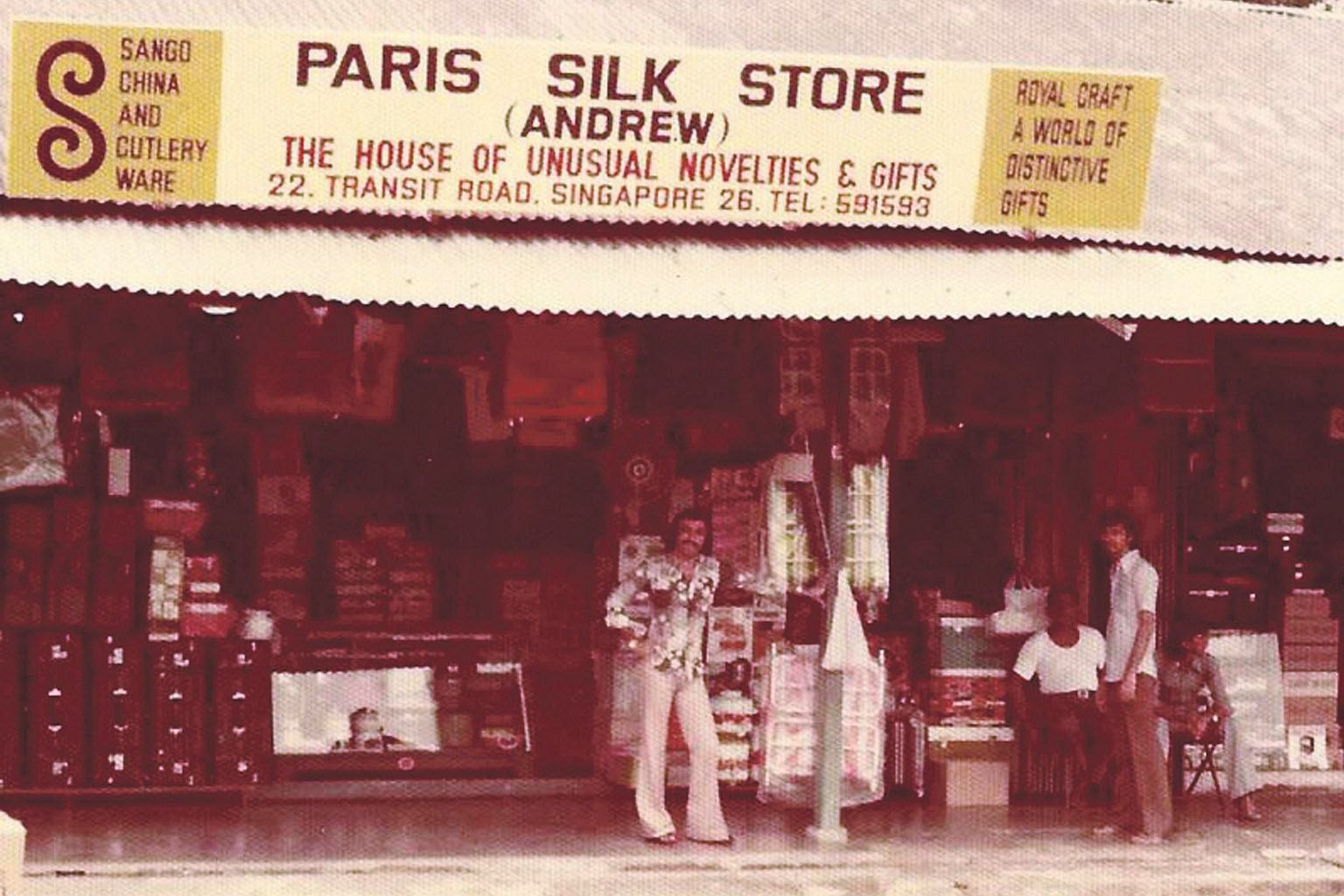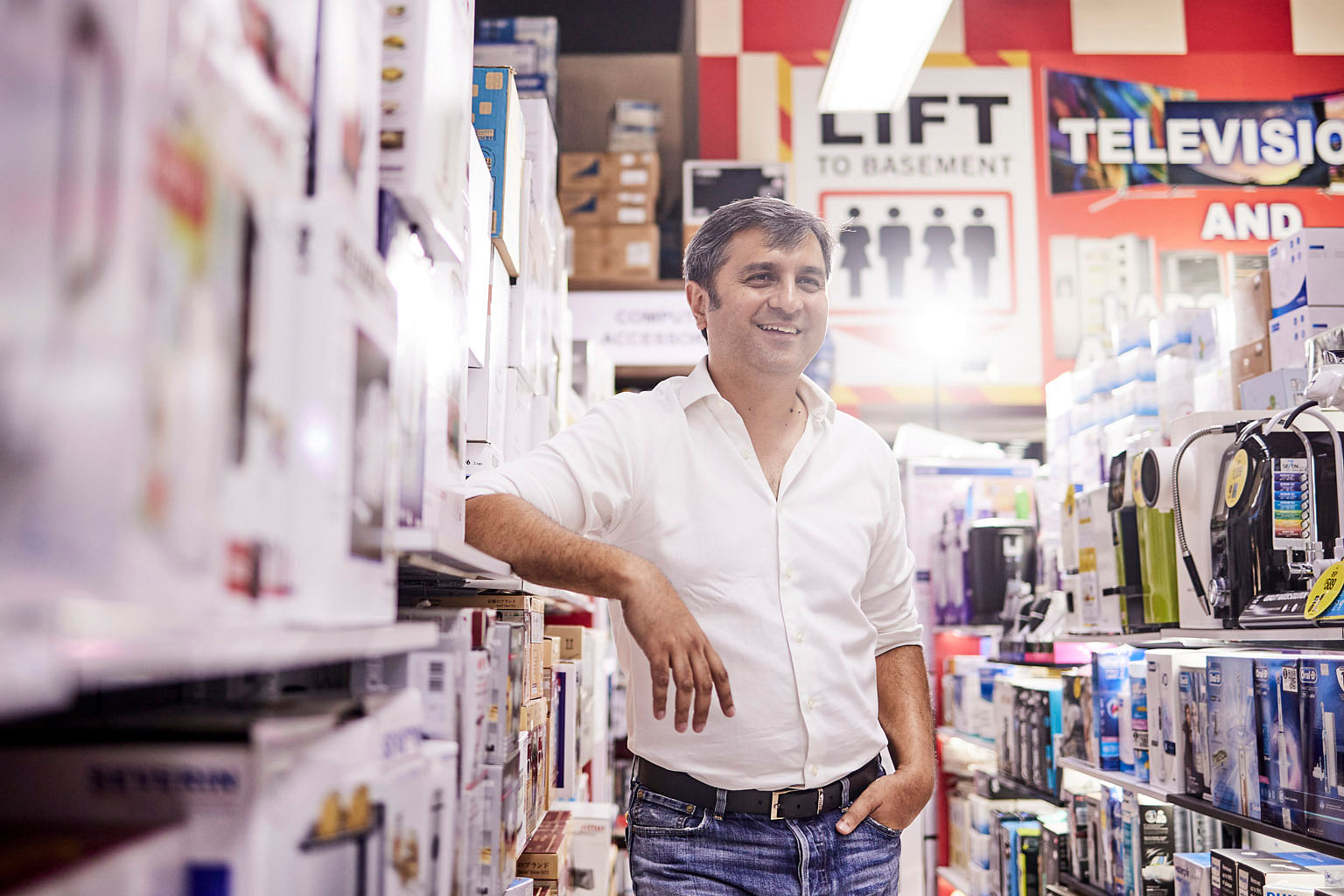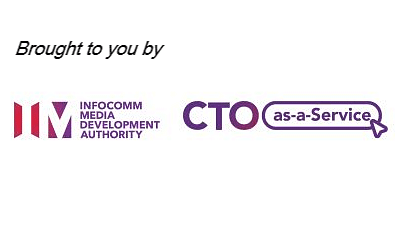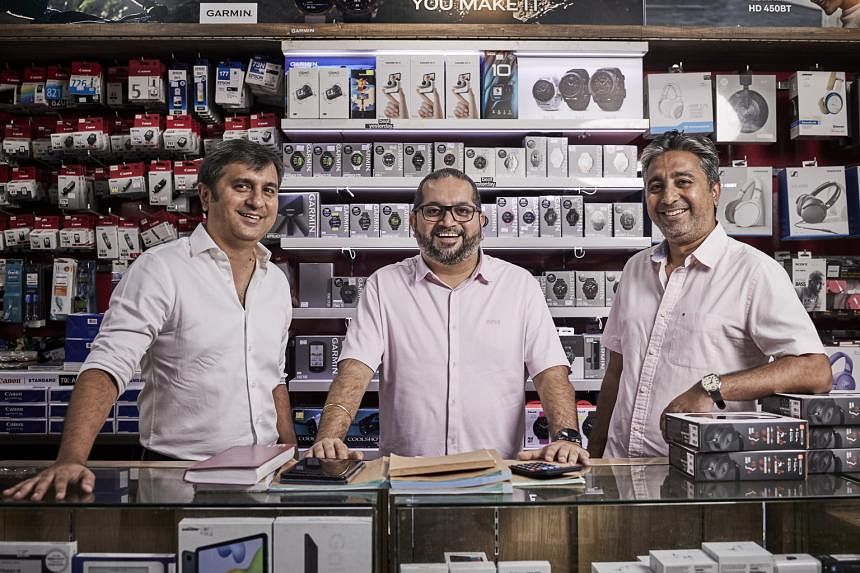Kicking a ball around with the neighbours’ kids and pushing one another down the street in trolleys – these are some of Mr Mahesh Primalani’s cherished childhood memories in Paris Silk Store at 22 Transit Road.
“We grew up together with the business,” says the third-generation owner.
Paris Silk Store was founded in 1952 by Mr Mahesh’s grandfather, Mr Gulabrai Primalani. Then newly married, Mr Gulabrai came to Singapore in search of a better life and set up a shop selling textiles, to provide for his growing family.
“He was very much a family man,” Mr Mahesh explains. “I was the first grandchild and he doted on me, so I got away with everything,” he laughs. “I was never a spoiled kid but if I asked for anything, like my favourite roti prata, I would get it.”
It was also during the days at Transit Road when the Primalanis had a few regular customers who would come in and ask for electronics. “They would say, ‘I’d like a radio’ and my dad and his brothers would run to the electronics stores down the street, pick up a radio from a neighbour and bring it back to sell to our customer,” Mr Mahesh reveals.
As these requests grew, Mr Mahesh’s father and uncles decided it would be a good idea to pivot to selling electronics since the demand was increasing. “It was an opportunity that excited them,” he says. However, since the shop’s name was already so well-established, the family decided to retain it and simply renamed it “Parisilk”.

While his grandfather had set up the shop as a means to provide for his family, Mr Mahesh’s father and uncles were on a mission to grow the business. By the time Mr Mahesh, his brother Ricky and their cousin Sunil took over the running of the business two years ago, Parisilk had expanded to four outlets in Singapore.
“We've never been the sort to go on huge expansion drives and go into every mall that pops up,” explains Mr Mahesh. “Even after all these years, we're only in four locations because we’re very selective and we tend to build a community around ourselves instead of just going to a mall and waiting for customers to walk in.”
This hands-on way of doing business with a personal touch was one of the reasons Mr Mahesh did not jump on the digitalisation bandwagon at first. “If you've got something that works, why rock the boat?” he muses. “I think that's why a lot of small and medium-sized enterprises (SMEs) tend to not want to move forward with these things.” But he also realised that the company needed to keep up with the times and do something different.
Taking the first step
When Mr Mahesh saw an advertisement for the Infocomm Media Development Authority’s (IMDA) Chief Technology Officer-as-a-Service (CTOaaS), he thought it would be a good opportunity to tap on the free Digital Health Check to ascertain Parisilk’s digital-readiness. Following that, he signed up for a Digital Consultancy where the first session with a digital consultant was free.
“The main problem they highlighted was inventory management,” Mr Mahesh says. As most of the Parisilk staff are old-timers, they relied on their memory to keep track of stocks. Doing this manually risked inaccuracies in stock-taking, forecast and, as a result, cashflow.
The digital consultant then recommended the Enterprise Resource Planning system, which includes tools for inventory, accounting and sales management. He also suggested a mobile stock-taking app which enables easier access to the database without staff having to be physically present at the warehouse, saving both time and effort as well as maximising efficiency.

Mr Mahesh appreciated the session so much he paid for another two sessions with the consultant, where they went on to discuss Customer Relationship Management, a system Mr Mahesh hopes to implement in time to come. “It was very informative,” he says of the sessions. “They were very happy to listen to what I had to say, the things I wanted to achieve, and were very forthcoming with their information. It was excellent in getting us on the right path.”
In the next few months, Mr Mahesh is also planning to sign up for a free project management session where the digital consultant will guide him on implementing the recommended solutions.
The extra help was just what the company needed to overcome its inertia and “lack of discipline”, Mr Mahesh says. “Given how challenging it is to run businesses today, with increased overheads and all, it is quite expensive now to make a wrong decision compared to how it used to be,” he explains. This is where going digital can help tremendously, in the form of getting data to accurately forecast stocks in the inventory.
“We're a company that runs on very thin margins, so it's important for us to move our stocks quickly just to manage the cash flow,” says Mr Mahesh. He explains that poor forecasting would result in stocks sitting in the warehouse for too long and, with new models introduced every now and then, old stocks would have to be sold at discounts and beyond that, the company would start to lose money.
To fellow SME owners, Mr Mahesh advises taking that step towards digitalisation to get data that would help safeguard the company from wrong business decisions. “We are quite fortunate in that because we are quite established, we should be able to recover from a mistake, even though it would be costly,” he says. “But I think a lot of SMEs these days wouldn't be able to. You make that one tragic mistake and you'll go underwater.”
At the end of the day, going digital does not mean abandoning the time-honoured ways of doing business that SMEs hold dear. On the contrary, digitalisation marries experience with useful data that can help the business stay relevant and reinforce SMEs' gut instincts to avoid making costly wrong decisions.
Mr Mahesh explains that relationships with staff and customers are still at the heart of Parisilk’s business. “We will not lose our essence with digitalisation. Relationships remain the most important part of our business,” he says. Knowing that his grandfather would be supportive of their digitalisation efforts, Mr Mahesh says, “I think my grandfather would be pleased that after so many years, the family is still together and working to achieve the same objectives.”


